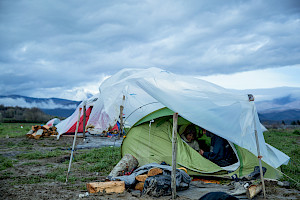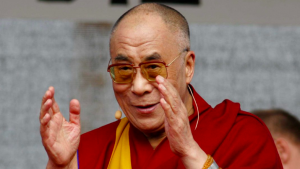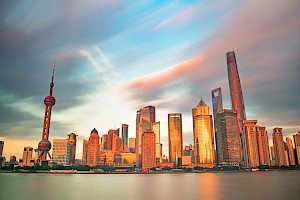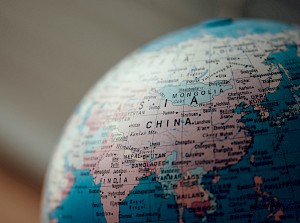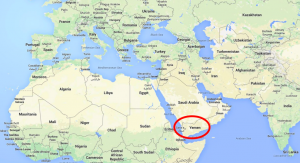As AI and robotics advance, are we ready for a post-work world?
May 18, 2022Originally published in The Toronto Star on May 10, 2022 as contributing columnist
“The real question is, when will we draft an artificial intelligence Bill of Rights? What will that consist of? And who will get to decide that?”
— Gray Scott, futurist, philosopher and artist
I’m old enough to remember television shows from the ’60s that featured futuristic concepts such as artificial intelligence (AI) and robot servants. “Lost in Space” and “The Jetsons” included robot sidekicks and “Star Trek” gave us a glimpse of an evil version of AI.
Captain Kirk and his crew occasionally faced off against computers like Landru, which had gone amok. The only way to defeat these digital villains was to outwit them using human or Vulcan logic. While this was all great entertainment for a 10-year-old, I was skeptical that any of these technologies would ever be possible in the real world. I put all this fantasy in the same category as I did superhero powers from the likes of Superman and the Flash. Scroll forward 50-plus years and not only are these ideas possible, but they are virtually around the corner.
It’s expected AI and robots will take over many types of occupations over the next few decades, which could mean the loss of hundreds of millions of jobs around the world. That possibility begs the question: Are we prepared for a post-work world?
In his book, “21 Lessons for the 21st Century,” author Yuval Noah Harari speculates that we clearly are not. We simply don’t have a feasible model for a post-work economy, society or political system. And that may prove a dangerous thing.
How will our civilization cope with a bifurcated society of “have” and “have nots”; between those who benefit from the additional benefits of these technologies and the “useless class” of those who will be unemployable? If you are at all familiar with 19th- and 20th-century history, you will recall the 100 years of chaotic and bloody adjustment that took place because of the Industrial Revolution. That experience will pale in comparison to the global job disruption that may be around the corner.
It’s worthwhile to summarize some of the job categories that may become extinct over the next few decades. This is not an exhaustive list, but it will give you a sense of the magnitude of what we are facing.
Taxi and truck drivers, store cashiers, fast food cooks, tradespeople, medical professionals, farm workers, financial advisers, loan officers, tax preparers, disc jockeys, mail sorters and carriers, pharmacists, bill collectors, couriers, parking enforcement (they won’t be missed), metal miners, computer operators, pilots and air traffic controllers (a scary thought), just to name a few. Autonomous Research estimates that 1.2 million people working in banking and lending alone will be replaced by artificial intelligence software by 2030.
Much of the legal community is at risk (less lawyers might sound appealing), mostly on the advisory side, but it’s hard to imagine AI litigating in the courtroom. Same goes for the medical profession. Diagnosis can be replaced, but we will still need the human touch for patient treatment. The glass-half-full proponents of AI and automation advancement will tell you that for as many jobs as will be lost, just as many will be created. But they offer very few real-world examples.
Some jobs are safe for now, including artists, software developers, athletes, engineers, psychiatrists, therapists, fiction writers and CEOs. Not exactly the bulk of the workforce.
One of the biggest advocates of this trend is Elon Musk. His vision and perseverance have brought us a world of possibilities, addressing everything from climate change through Tesla and space travel through Space X. Musk was initially — and perhaps still is — worried about AI. “As AI gets probably much smarter than humans, the relative intelligence ratio is probably similar to that between a person and a cat, maybe bigger.” He also said, “I think we need to be very careful about the advancement of AI.”
With that in mind, Musk helped fund physicist Max Tegmark’s Future of Life Institute, which works to mitigate existential risks facing humanity, particularly from advanced AI. Musk also launched OpenAI, whose mission is to ensure that artificial general intelligence benefits all humanity. In a recent TED Talk interview, Musk spoke enthusiastically about the benefits of AI, from self-driving Teslas to his Optimus robots and his Neuralink Corporation, which is a neurotechnology company that develops implantable brain-machine interfaces with the eventual goal of human enhancement. “Transhumanism,” as it is known.
Prefacing that he has been wrong before, he predicts that, perhaps by this year, Tesla will have solved the problem that has slowed down the development of self-driving cars. Once the cars’ cameras can capture and process what he calls “real-world” AI images (with a memory capacity), not only will cars be able to drive without human intervention, but so too will his Optimus robots execute real world tasks without being specifically instructed. As he puts it, the self-driving car is just a robot on four wheels, so it should be easier and cheaper to mass produce once “real-life” AI is perfected. Musk thinks that, by 2050, we may all have a buddy or butler robot in our homes.
Think about it. A robot that can recognize all humans and household items, tidy up, cook, mow the lawn, or just hang out and chat with you. Parenthetically, AI-enhanced robots may at some point become suitable sex partners, which might put the careers of the world’s approximately 42 million prostitutes at risk as well.
Musk’s vision for humanity is optimistic. But even he thinks we need to tread carefully and that these future robots should have carefully designed safety features and that they should be regulated by government. But we live in a competitive and increasingly hostile world.
Musk and Google’s DeepMind aren’t the only ones working feverishly to develop AI. China leads the world in AI research. So how do we co-operate and how do we agree on whose values and priorities we implement when considering what’s best for humanity? Will we have to agree on policies such as the care for a potential “useless class” of the unemployed? Will there be consensus on a universal basic income like the one being pilot-tested by countries like Finland? What kind of political system will be needed in a world where the unemployed will outnumber the workforce?
As Harari puts it, “The challenges posed in the 21st century are arguably bigger than those thrown up by steam engines, railways, electricity and fossil fuels. Given the immense destructive power of our modern civilization, we cannot afford more failed models, world wars and bloody revolutions. We have to do better this time.”
He’s right. We need to ensure that the future of AI, robotics and related fields is one of beneficial support for the enhancement of human activity, and not a dystopian future where a virtual “Skynet” wreaks economic and social mayhem on all of mankind.


